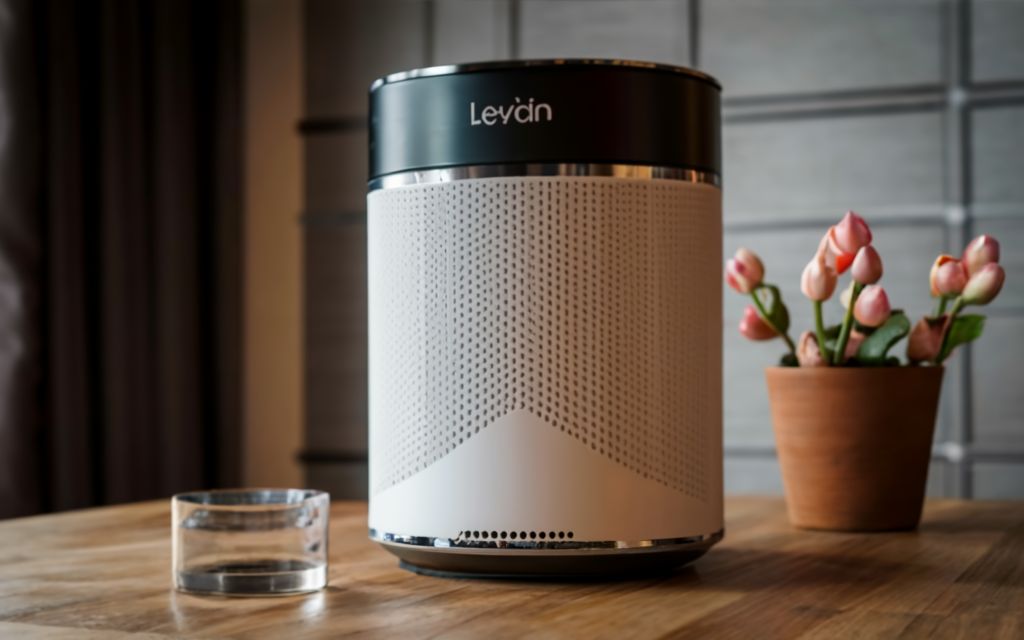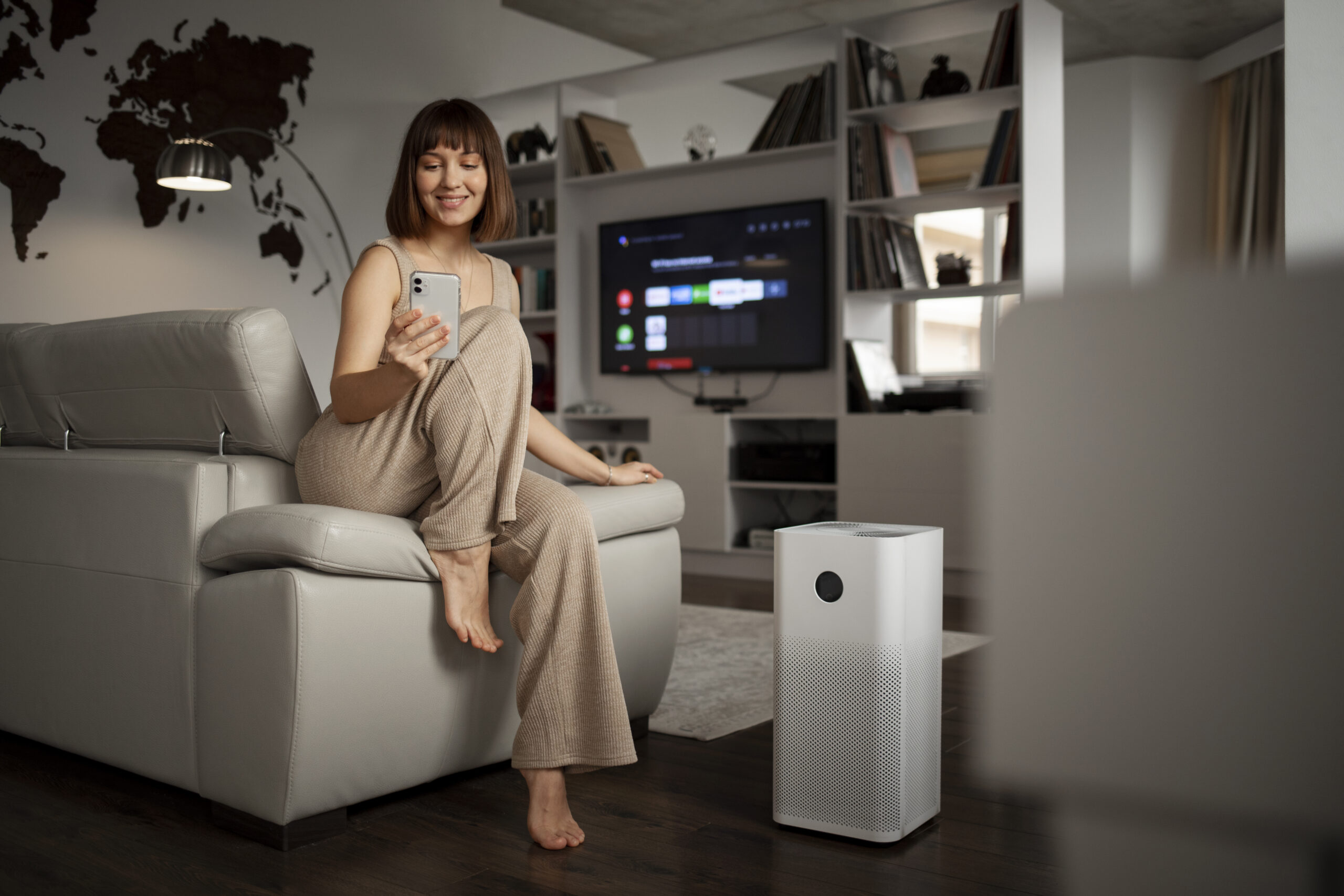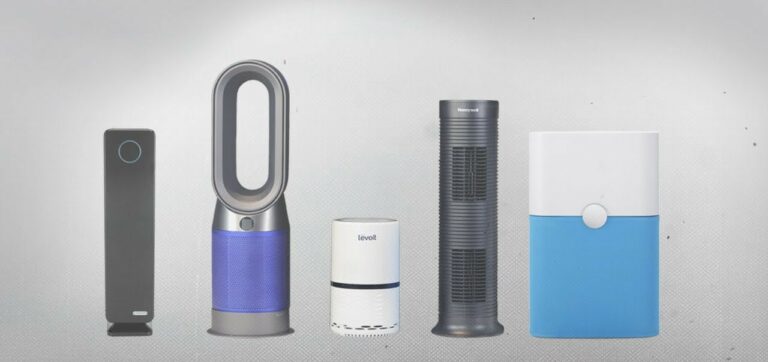Introduction
Thinking about getting an air purifier to enhance the air quality in your home or office? Although these devices are effective at eliminating pollutants and allergens, it’s important to be informed about possible drawbacks. This blog post will provide a comprehensive analysis of the Negative Side Effects of Air Purifiers.
From ozone emission to noise disturbance, we’ll cover all the essential information you need before deciding on purchasing one of these widely-used devices. Let’s discover the lesser-known aspects of air purifiers together!
Negative Side Effects Air Purifiers – Overview

1. Ozone Production Concerns:
- One of the most significant concerns Negative Side Effects of Air Purifiers is their potential to produce ozone, a harmful pollutant. Ozone can irritate the lungs, cause chest pain, and worsen asthma symptoms. Ensure that the air purifier you choose does not produce ozone and consider models with HEPA filters for effective and safe purification.
- If opting for an air purifier emitting ozone, use it in a well-ventilated area and follow the manufacturer’s instructions carefully.
2. Increased Electricity Usage:
- The operation of air purifiers can lead to increased electricity consumption, resulting in higher utility bills. Larger or continuously running air purifiers can consume significant energy. Consider the energy efficiency of the device before purchase, look for Energy Star labeled models, and choose smaller purifiers or those with adjustable fan speeds to reduce energy consumption.
- Use the air purifier only when necessary and turn it off when leaving the room to save energy.
3. Incomplete Pollutant Removal:
- Air purifiers may not completely remove all pollutants, especially smaller particles like viruses and bacteria, or eliminate odors and chemicals from the air. They are not designed to remove gases or volatile organic compounds (VOCs). Ventilate the space regularly, use natural air-purifying methods, or choose an air purifier with a carbon filter for better gas and chemical absorption.
- Note that carbon filters need regular replacement to prevent bacterial and mold growth.
4. Filtration Dryness and Irritation:
- Some air purifiers with high-efficiency filters can remove moisture from the air, causing dryness and irritation, especially for those with respiratory issues or sensitive skin. Consider air purifiers with humidifying features or use a separate humidifier in the same room. Models with adjustable fan speeds can help reduce dryness.
- Regularly replacing the filter is crucial to preventing dryness and irritation.
Effects of Noise Pollution from Air Purifiers:
- While noise pollution from air purifiers may not pose a direct threat to human health, it can still have negative effects on overall well-being. Exposure to constant noise can lead to stress, irritability, and difficulty concentrating. It can also interfere with sleep, which can lead to a host of other health problems.
Mitigating Noise Pollution:
- To avoid noise pollution from air purifiers, it’s important to choose a model that operates at a low noise level. Look for air purifiers that are advertised as “quiet” or “ultra-quiet,” and check the decibel (dB) level before purchasing. Additionally, consider using the air purifier on a lower setting, or only during times when noise levels are not a concern.
Here are some extra tips

Looking for some extra tips to maximize the efficiency of your air purifier? Here are a few suggestions to consider:
1. Placement Matters: Ensure your air purifier is placed in a central location within the room for optimal air circulation.
2. Regular Maintenance: Don’t forget to clean or replace the filters as recommended by the manufacturer to keep your unit running smoothly.
3. Proper Ventilation: While using an air purifier, it’s important to ensure proper ventilation in the room by opening windows periodically.
4. Monitor Air Quality: Invest in an air quality monitor to track changes and adjust settings on your purifier accordingly.
5. Consider Room Size: Make sure your air purifier is suitable for the size of the room you intend to use it in for maximum effectiveness.
Frequently Asked Questions (FAQs)

1. Do air purifiers use a lot of electricity?
The amount of electricity an air purifier uses depends on its size, type, and usage. Generally, smaller units with lower fan speeds will use less electricity than larger units with higher fan speeds. It’s best to check the energy rating of the specific model you are considering before purchasing.
2. Can air purifiers make you sick?
Air purifiers are designed to improve indoor air quality and help reduce the risk of respiratory illnesses. However, if not maintained properly, they can become a breeding ground for bacteria and mold, which can make you sick. It’s essential to regularly clean and replace filters to prevent this.
3. Are air purifiers noisy?
Some air purifiers can be noisy, especially when operating at higher fan speeds. However, many models now come with noise-reducing features or a “sleep mode” for quieter operation. It’s best to check the noise level of the specific model you are considering before purchasing.
Conclusion
While air purifiers are beneficial in improving indoor air quality and reducing allergens, it is essential to be aware of the potential negative side effects they may have. By understanding these drawbacks such as ozone production, increased electricity usage, incomplete air cleaning, filtration dryness and irritation, and noise pollution, users can make informed decisions on whether to use an air purifier and how to mitigate these issues. Remember to carefully consider your specific needs and concerns before investing in an air purifier for your home or office space.


